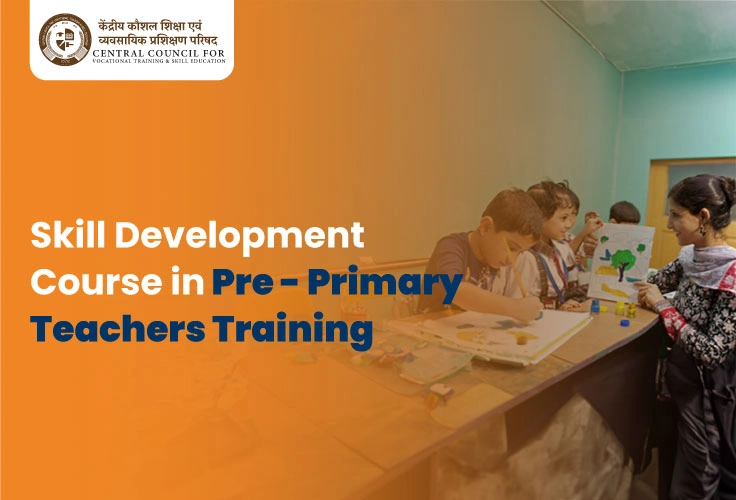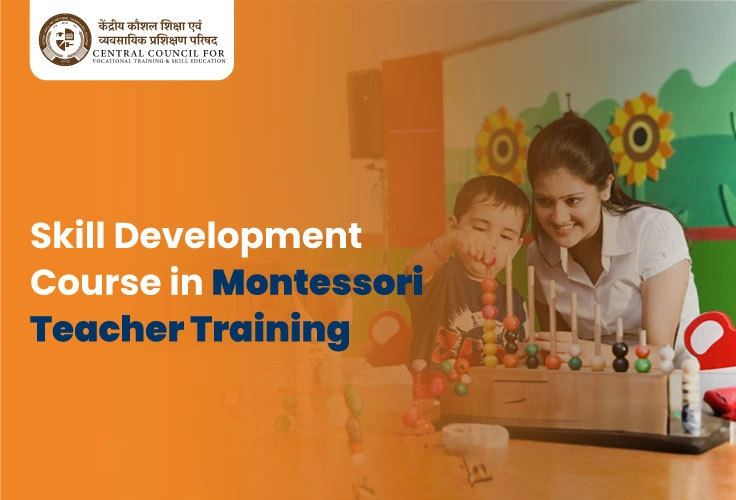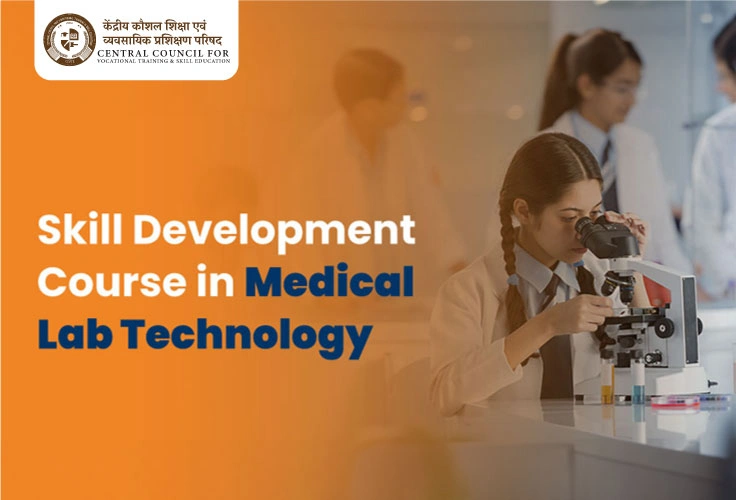- +91 8595350621
- info@ccvte.org
- C4/97B, Keshav Puram, Delhi-110035
Pre - Primary Teachers Training

Skill Development Program in Pre - Primary Teachers Training
The CCVTE provides pre-primary teacher training courses. The course is intended to meet the growing need for qualified pre-primary educators with the knowledge and skills to give young students an interesting and simply understood education.
These courses give aspiring teachers the thorough training they need in various early childhood education topics, giving them the skills, information, and abilities necessary to instruct and care for young children properly.
Why did you choose Pre-Primary Teacher Training from CCVTE?
At CCVTE, Expert faculty members create the course curriculum, which prepares students to teach at the pre-primary, primary, Montessori, and nursery education levels. The purpose of pre-primary teacher training is to provide the fundamental abilities and knowledge needed to instruct students in grades two through twelve. To facilitate good communication between educators and children, the curriculum primarily focuses on understanding children's psychology.
People looking for a work-life balance and a career shift, as well as those who are aspiring teachers, are big fans of our Certificate in Pre-Primary Teacher Training. Through an inventive and captivating learning environment, it offers students a variety of instructional aids and classroom management techniques. This aids students in gaining the competence needed to instruct at the pre-primary level of school and builds a solid basis for kids' future success.
All things considered, a pre-primary teacher training program is a must for anyone hoping to work with young children, as it offers the groundwork needed to establish a productive and influential early learning environment.
Syllabus
|
3 Months |
6 Months |
1 Year |
2 Years |
|
Child Development and Psychology |
Child Development and Psychology |
Child Development and Psychology |
Child Development and Psychology |
|
Introduction to Early Childhood Education |
Introduction to Early Childhood Education |
Introduction to Early Childhood Education |
Introduction to Early Childhood Education |
|
Health, Nutrition, and Safety |
Health, Nutrition, and Safety |
Health, Nutrition, and Safety |
Health, Nutrition, and Safety |
|
Educational Psychology |
Educational Psychology |
Educational Psychology |
Educational Psychology |
|
Communication Skills |
Communication Skills |
Communication Skills |
Communication Skills |
|
Curriculum Planning and Development |
Curriculum Planning and Development |
Curriculum Planning and Development |
|
|
Teaching Methodologies and Strategies |
Teaching Methodologies and Strategies |
Teaching Methodologies and Strategies |
|
|
Educational Technology in Early Childhood Education |
Educational Technology in Early Childhood Education |
Educational Technology in Early Childhood Education |
|
|
Observational Techniques and Assessment |
Observational Techniques and Assessment |
Observational Techniques and Assessment |
|
|
Field Work and Practicum |
Field Work and Practicum |
Field Work and Practicum |
|
|
Language and Literacy Development |
Language and Literacy Development |
||
|
Mathematics and Logical Thinking |
Mathematics and Logical Thinking |
||
|
Science and Environmental Studies |
Science and Environmental Studies |
||
|
Classroom Management and Discipline |
Classroom Management and Discipline |
||
|
Creative Arts and Crafts |
|||
|
Physical Education and Motor Skills |
|||
|
Social Studies and Moral Education |
|||
|
Parent and Community Involvement |
|||
|
Field Work and Practicum |
|||
|
Advanced Child Development Studies |
|||
|
Educational Leadership and Management |
|||
|
Research Methods in Early Childhood Education |
|||
|
Specialized Teaching Techniques |
|||
|
Elective Course (Choose One) |
Career Opportunities
- Pre-Primary Teacher
- Daycare Center Manager
- Early Childhood Education Consultant
- Curriculum Developer
- Childcare Worker
- Montessori Teacher
- Teacher Trainer
- School Administrator
- Parent Educator
- Education Consultant
- Special Education Teacher
Top Hiring Schools/Institutions/Universities
- Delhi Public School (DPS)
- The Shri Ram Schools
- Podar International School
- EuroKids International
- Kidzee
- Amity International Schools
- Bachpan Play School
- Tata Institute of Social Sciences (TISS)
- Lady Irwin College
- National Institute of Public Cooperation and Child Development (NIPCCD)
- IGNOU (Indira Gandhi National Open University)
- Jamia Millia Islamia
- Azim Premji University
- University of Delhi
- S.N.D.T. Women’s University
Other Education Courses Provided by CCVTE
Frequently Asked Questions
Pre-primary teachers training is essential to equip educators with the skills and knowledge needed to effectively support early childhood development, create engaging learning environments, and address the developmental needs of young children.
The curriculum generally includes child development, early learning theories, lesson planning, classroom management, and practical teaching methods. It may also cover topics like creative arts, language development, and family engagement.
Support may include academic advising, mentorship from experienced educators, access to teaching resources, and career counseling. Institutions often provide various forms of support to help students succeed.
Assessment methods may include assignments, practical teaching evaluations, written exams, and project work. The evaluation criteria are usually designed to measure both theoretical knowledge and practical skills.
The course is designed to provide both theoretical knowledge and practical experience through classroom simulations, internships, and real-world teaching scenarios to ensure you are well-prepared for actual teaching roles.




